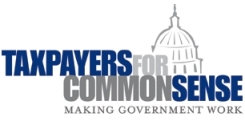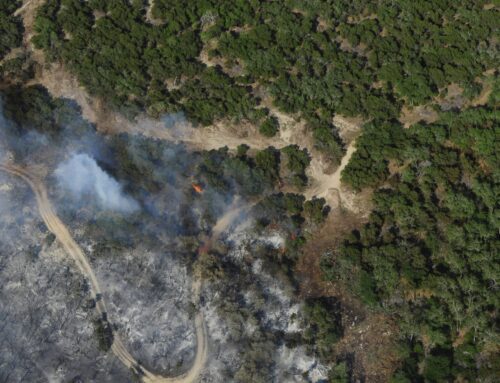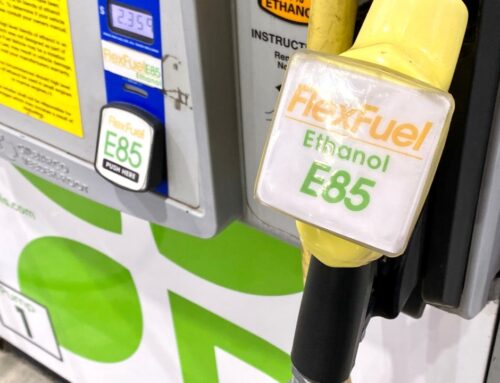Today, Taxpayers for Common Sense President Ryan Alexander testified before the House Natural Resources Subcommittee on Energy and Mineral Resources on proposed state-federal revenue sharing alterations within H.R. 2231, or the “Offshore Energy and Jobs Act,” introduced by Representative Doc Hastings (R-WA).
|
Ms. Ryan Alexander
Legislative hearing on H.R. 2231, the “Offshore Energy and Jobs Act” June 11, 2013 Good morning Chairman Lamborn, Ranking Member Holt, and distinguished members of the Committee. Thank you for the opportunity to testify today on the Offshore Energy and Jobs Act, H.R. 2231. My name is Ryan Alexander and I am President of Taxpayers for Common Sense (TCS), a national, non-partisan budget watchdog organization. The mission of Taxpayers for Common Sense is to achieve a government that spends taxpayer dollars responsibly and operates within its means. Over the last 17 years, TCS has worked actively to ensure that taxpayers receive a fair return on resources extracted from federal lands and waters. Royalties and fees collected from resource development represent a significant source of income for the federal government and must be collected, managed and accounted for in a fair and accurate manner. As the rightful owners, taxpayers have the right to fair market compensation for the resources extracted from our lands and waters, just like any private landowner. Unfortunately, over the years taxpayers have lost billions on royalty-free oil and gas leases and royalty-free hard rock mineral operations on federal lands. Taxpayers have also lost because of a corrupt and inadequate royalty collection system and outdated laws. In today’s budget climate, we cannot afford to lose this valuable revenue. These problems must be resolved as we move forward with additional mining and energy production on federal lands and waters. Today’s hearing to examine legislation to increase energy production in federal waters is certainly an important discussion. Without any oil and gas extraction, taxpayers would lose important royalty revenue altogether. But simply providing greater access for offshore activities and not addressing the larger royalty collection problems will not provide a solid basis for the long-term solution to our nation’s financial troubles and could also lead to greater taxpayer liabilities down the road. In addition, altering the state-federal revenue shares for offshore drilling, as the “Offshore and Jobs Act” proposes, would siphon valuable revenue from the federal coffers for decades to come. At a time when we should be discussing how to bring in more revenue – not less – to the federal Treasury, this policy would not only be costly, but also short-sighted. This morning, I would like to first discuss the need for fair return for all resource extraction on federal lands and waters. Then I would like to address several concerns with the changes that H.R. 2231would make to the existing federal-state revenue sharing provisions for offshore oil and gas extraction. Energy Legislation Must Ensure Fair and Accurate Collection of Revenues for Extraction of our Federal Resources Natural resources derived from federal lands and waters can and do provide great benefit to the entire nation. In addition to their end use and overall domestic economic benefit, their extraction provides valuable revenue to federal coffers, with the potential to provide much more. To this end, federal lands and waters must be mined, drilled or otherwise developed in a manner that protects taxpayers’ interests. Appropriate fees, rents and royalties must be collected and long-term liabilities such as potential clean-up or mitigation costs must be shouldered by the extractive industries, not by taxpayers. TCS believes in “fix it first.” While federally owned natural resources currently provide around $10 billion to the Treasury, this amount falls dramatically short of what is rightfully owed to the federal Treasury. For example, the taxpayers are currently losing billions of dollars on royalty-free oil and gas leases in the Gulf of Mexico, as well as royalty-free operations for hard rock mineral extraction on federal lands. We must fix these problems so that we can recoup what we are owed before moving forward. Royalty Revenue Falls Short TCS believes there are many areas where reform is needed to ensure fair and accurate royalty collection. First, the federal government must have a clear, transparent collection system that has sufficient oversight and accountability. The many scandals that plagued the Minerals Management Service (MMS), the agency that for nearly three decades ran the government’s royalty collection system, demonstrated how corrupted the system can become. For years the Government Accountability Office (GAO) has found that the Department of Interior has not done enough to monitor and evaluate its royalty collections. GAO has included royalty collection in its last two reports on high-risk federal programs and activities. A report in 2008 found that the DOI had not reviewed how it was compensated for extracted oil and gas from public lands for more than 25 years and had no system in place to even determine whether or not such a reassessment was needed. A 2010 study found that DOI had no way to determine if it was accurately measuring the amount of resources taken from public lands, making it unlikely the federal government is being fairly compensated. On top of these collection issues, the U.S. has some of the lowest underlying royalty rates in the world. Other reforms to existing onshore oil and gas operations could also provide more valuable revenue for taxpayers. In 2010, GAO found that taxpayers would receive $23 million more in royalty revenue annually from additional natural gas obtained from federal lands, if companies were required to capture vented or flared natural gas in cases where it is economically feasible. At the same time that federal taxpayers are not assured of adequate royalty collection, they are also being asked to provide revenue from offshore leases in federal waters to the states. The Gulf of Mexico Energy Security Act (GOMESA) already directs a portion of revenue derived from new leases in federal waters in the Gulf of Mexico to the states rather than to federal taxpayers. Since 2006, this law has cost taxpayers more than a billion dollars. and it will cost billions more in the years ahead. I will address this issue further in a moment. Problems with Restructuring at DOI Although the MMS has been dismantled, the Department of Interior’s new royalty management structure is still a work-in-progress. Since royalty collection has remained on the GAO’s high-risk list, despite the new system at DOI under the Office of Natural Resources Revenue, it seems like the agency still has work to do in this area. Until this new system demonstrates it can effectively manage our taxpayer resources and collect royalties from existing operations on federal lands, it would be premature to add to their portfolio a new category of leases without assurances that taxpayers are being protected. While H.R. 2231 addresses the new system at the DOI by codifying it into federal law, it would change little in the current system. Under existing law, the Secretary of Interior has the authority make these changes and has proceeded with the dismantling of the Minerals Management Service and the restructure of the Office of Natural Resources Revenue. Further, H.R. 2231 adds layers to the bureaucracy at DOI, with the addition of a new undersecretary and two assistant secretaries. These new layers of political appointees will not only cost taxpayer money to fund, they will create more red tape in processing and executing leases and royalty collection fairly and efficiently. Finally, while TCS applauds H.R. 2231’s application of the user-pays principle for requiring inspection fees to fall on the oil and gas industry not federal taxpayers, we are concerned that fixing the price for the inspections prematurely could lead to taxpayers footing the bill for any additional inspection costs. State Revenue-Sharing Changes Proposed in H.R. 2231 Taxpayers for Common Sense is opposed to any legislative measure that would allow states to receive a greater percentage of oil and gas revenues than is allowed under existing federal-state revenue-sharing provisions for royalty payments. We oppose any measure to direct any additional percentage of royalties collected on new leases in federal waters to the states. Further, we would like to see the revenue-sharing provisions of GOMESA repealed and the original federal/state shares reinstated. Revenues from traditionally defined federal waters must be directed to the federal Treasury. To be clear, TCS is not opposed to offshore drilling or to opening up more areas in federal waters for drilling. Additional federal resources can be derived from new drilling, and federal taxpayers, the rightful owners of those resources, should receive that revenue. We believe with proper taxpayer safeguards and the application of fair market royalties, federal resources can and must be used to meet our nation’s energy, transportation, and mineral needs. Determining whether it is in the national interest to drill should include an evaluation of offshore resources and potential income, and also potential long-term liabilities and the risk of those liabilities. Revenue-sharing provisions, like those proposed in H.R. 2231, siphon billions of dollars in valuable revenue from the general Treasury. Not only is this bad policy, in today’s fiscal climate it is downright foolish. Providing an increased share to the states would do nothing to encourage energy development, as it doesn’t affect the bottom line of the oil and gas, wind, or other offshore developers—they would owe the same royalties, rents, and fees at the end of the day either to the states or to the federal government. Thus, it reduces federal revenues without adding any incentive toward energy development. Federal taxpayers are due the royalties derived from leases operating in federal waters because those waters are administered, protected, and managed by federal – not state – agencies at a cost to federal taxpayers. Federal taxpayers fund the agencies charged with royalty collection and lease regulations. Additionally, the U.S. Coast Guard, not the states, inspects and regulates the offshore drilling rigs; it also performs vessel regulation, search and rescue, security, and pollution response. Unlike onshore energy operations, offshore energy operations do not occur in any state. The impact of operations beyond state waters reaches well beyond any one state and has national implications. States do get the money from waters dedicated to the states under federal law and we believe this should continue in any new drilling in state waters. In addition, they get economic development benefits from energy operations in federal waters near their coasts. But all Americans should get the revenue from royalties, rents and bonus bids in federal waters. These waters are more than six miles from the coast and nine miles in parts of the Gulf of Mexico. State waters are within three miles of their respective shoreline. The changes made in the 2006 GOMESA legislation, which gave the Gulf states a larger share of federal revenues, demonstrate how large the revenue losses can be to federal taxpayers. Under GOMESA, Gulf states receive 37.5% of the royalty income from certain newly opened areas in federal waters of the Gulf. Beginning in 2016 they will receive 37.5% of royalties from new leases throughout the Gulf’s federal waters, up to $500 million annually. The new revenue-sharing provisions of H.R. 2231 would extend these revenue-sharing provisions to new leases, resulting in an addition multi-billion dollar loss to the taxpayers. Expanding revenue shares into federal waters, as proposed in H.R. 2231, also presents a logistical nightmare. Beyond the limited state waters designated in federal law (extending 3 to 6 miles from shore), there are simply no state boundaries in federal waters. Drawing boundaries for states and determining the recipient for the increased state revenues for waters so far offshore would be a legal and technical nightmare. The division of revenue among the states in the GOMESA legislation represented a political compromise that would be indefinitely more complicated along other U.S. coasts. For example, states with concave or convex coastlines may have difficulty determining boundaries or agreeing on where their state’s interests lie. The proposal for leasing wind offshore Rhode Island and Massachusetts was delayed nearly a year by negotiations between the states, and other areas along the East Coast could yield similar conflicts. Royalties collected from offshore drilling in federal waters should be returned to the rightful resource owner, the federal taxpayer. States receive revenue from royalties collected within state waters and the transitional area between state and federal waters (3-6 miles from shore). The federal government manages and secures operations off our coasts and the taxpayer bears the cost of these services. The impacts of drilling in federal waters have national implications. Costs and benefits should be carried out in the interest of all Americans, not a handful of coastal states. Additionally, relying on this money to pay for today’s infrastructure needs is bad budget policy. Conclusion The country is now facing a $17 trillion debt and across the board budget cuts. Many things need to be done to resolve the nation’s fiscal woes, not the least of which is ensuring federal taxpayers get the revenue they deserve for the resources they own. All resources extracted from federal lands must provide federal taxpayers with fair market revenue. It is imperative that energy legislation address these problems. Making more natural resources available, without ensuring recoupment of what taxpayers are already owed for current and past operations, is likely to only ensure inadequate collection of royalties on new leases and to perpetuate the existing flawed system for even longer. Without legislation to address the existing problems, taxpayers will continue to lose valuable revenue—revenue that can be used to address our nation’s budget deficit. The bottom line is that federal lands and waters must be used responsibly and taxpayers must receive appropriate financial assurances from those companies benefiting from resource extraction. Without proper assurances, any future financial liabilities will fall on the shoulders of taxpayers. Providing increased access without addressing future taxpayer costs is fiscally irresponsible and could cost taxpayers billions. Giving additional money from federal resources to the states will simply compound our budget problems. H.R. 2231 raises important fiscal issues, but should be revised with the primacy of the federal taxpayers in mind.
An independent watchdog for the taxpayers of today and tomorrow |











